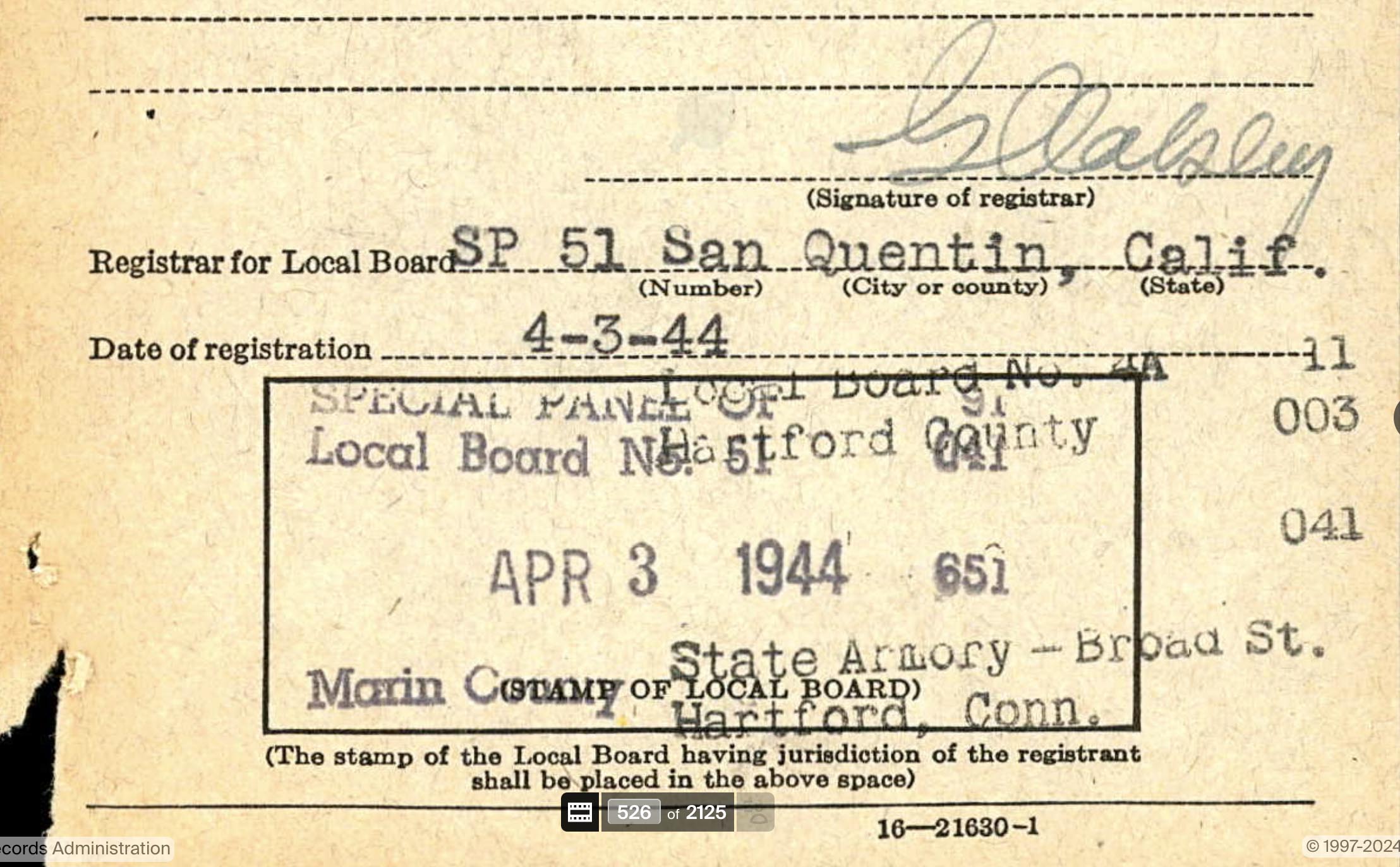Forums
I'm looking to understand the two local boards identified in a World War II draft registration card. This man was in San Quentin on that date. So why the Hartford County stamp?
He was previously in Connecticut State Prison from 1940–1942. He committed another crime in California 4 years later which landed him in San Quention prison. Ancestry has this card filed under Connecticut.

Hendrickson, would you give…
Hendrickson, would you give me an Ancestry link as a place to start?
Hendrickson, would you give…
Hendrickson, would you give me an Ancestry link as a place to start so I don't have to track down the card?
https://www.ancestry.com…
https://www.ancestry.com/discoveryui-content/view/11888690:2238?
Hendrickson, you have an…
Hendrickson, you have an interesting situation. Of the six different draft registration acts in the U.S. between 1940 and 1945, he should have qualified under the first, but the date range on his card (February 17 1897 – December 31, 1921) and the card revision date on side one (viewed at Ancestry) correspond to the Third Registration.
The first act, passed in September 1940, began registration in October 1940. You say he was in a Connecticut prison from 1940 to 1942, but did not give the month in 1940 that he was incarcerated. That raises the question as to whether he would have registered in Connecticut 1940 as a free man or an inmate.
The image you posted above (the back side of the card), presents the Hartford data as a two-line "add-on" in the bottom right corner (in different typeface), with no date for that registration, no registration number, or any other detail—only “State Armory—Broad St., Hartford, Conn.”
You state that he committed a second crime in 1944 and was re-incarcerated at San Quentin. Given that there was San Quentin (the civil location) and San Quentin (the prison), did the “Date of registration: 4-3-44” occur before or after his 1944 intake into the prison? (The reference to “Special panel of Local Board No. 51” does suggest the prison.)
All this raises several other questions:
The fullest discussion, from a genealogical standpoint, that I spotted during my one-hour survey was at the FamilySearch Wiki https://www.familysearch.org/en/wiki/United_States_World_War_II_Draft_Records) — a discussion far more detailed than what NARA has online.
Admittedly, I just started…
Admittedly, I just started researching this individual. I do not have Connecticut prison records, however, over the past few days, I have managed to gather some additional information.
- He was admitted into a New Haven, CT jail in April of 1940, which probably excluded him from registering because of his sentence.
- I found another draft card registered in the State of New York on 20th May 1942, indicating that he was discharged from Connecticut State Prison, suggesting a 2-year sentence.
- He was admitted to Folsom (CA) prison on March 30, 1944, and then transferred to San Quentin on April 11, 1944. His draft registration card was dated April 3, 1944, so he was actually in Folsom prison at the time of registration.
Thanks for helping me think this through a little more. Like you said, it's been challenging to find information regarding the registrations of prison inmates during WW II. I need to keep searching.
Thanks for sharing the issue…
Thanks for sharing the issue with us, Hendrickson. It will help others as well.